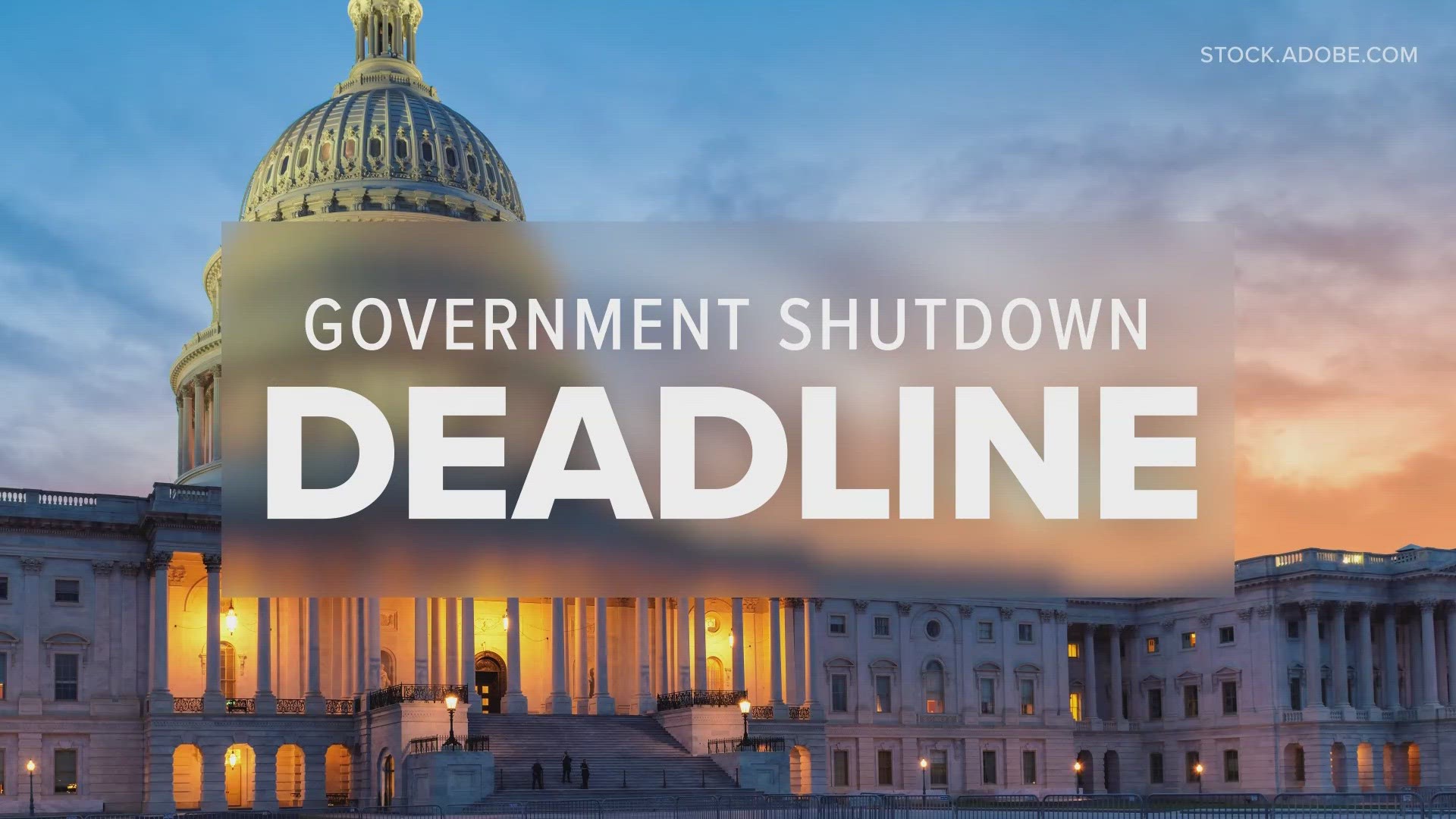WASHINGTON — The United States is on the brink of a federal government shutdown after hard-right Republicans in Congress rejected a longshot effort to keep offices open as they fight for steep spending cuts and strict border security measures that Democrats and the White House say are too extreme.
With no deal in place by midnight Saturday, federal workers will face furloughs, more than 2 million active-duty and reserve military troops will work without pay and programs and services that Americans rely on from coast to coast will begin to face shutdown disruptions.
The Senate will be in for a rare Saturday session to advance its own bipartisan package that is supported by Democrats and Republicans and would fund the government for the short-term, through Nov. 17.
But even if the Senate can rush to wrap up its work this weekend to pass the bill, which also includes money for Ukraine aid and U.S. disaster assistance, it won't prevent an almost certain shutdown amid the chaos in the House. On Friday, a massive hard-right revolt left Speaker Kevin McCarthy's latest plan to collapse.
“Congress has only one option to avoid a shutdown — bipartisanship,” said Senate Majority Leader Chuck Schumer, D-N.Y.
Senate Republican leader Mitch McConnell of Kentucky echoed the sentiment, warning his own hard-right colleagues there is nothing to gain by shutting down the federal government.
“It heaps unnecessary hardships on the American people, as well as the brave men and women who keep us safe,” McConnell said.
The federal government is heading straight into a shutdown that poses grave uncertainty for federal workers in states all across America and the people who depend on them — from troops to border control agents to office workers, scientists and others.
Families that rely on Head Start for children, food benefits and countless other programs large and small are confronting potential interruptions or outright closures. At the airports, Transportation Security Administration officers and air traffic controllers are expected to work without pay, but travelers could face delays in updating their U.S. passports or other travel documents.
Congress has been unable to fund the federal agencies or pass a temporary bill in time to keep offices open for the start of the new budget year Sunday in large part because McCarthy, R-Calif., has faced unsurmountable resistance from right-flank Republicans who are refusing to run government as usual.
McCarthy's last-ditch plan to keep the federal government temporarily open collapsed in dramatic fashion Friday as a robust faction of 21 hard-right holdouts opposed the package, despite steep spending cuts of nearly 30% to many agencies and severe border security provisions, calling it insufficient.
The White House and Democrats rejected the Republican approach as too extreme. The Democrats voted against it.
The House bill’s failure a day before Saturday’s deadline to fund the government leaves few options to prevent a shutdown.
“It’s not the end yet; I've got other ideas,” McCarthy told reporters.
Later Friday, after a heated closed-door meeting of House Republicans that pushed into the evening, McCarthy said he was considering options — among them, a two-week stopgap funding measure similar to the effort from hard-right senators that would be certain to exclude any help for Ukraine in the war against Russia.
Even though the House bill already cut routine Ukraine aid, an intensifying Republican resistance to the war effort means the Senate's plan to attach $6 billion that Ukraine's president, Volodymyr Zelenskyy, is seeking from the U.S. may have bipartisan support from Democrats but not from most of McCarthy's Republicans.
Republican Sen. Rand Paul of Kentucky is working to stop that aid in the Senate package.
The White House has brushed aside McCarthy's overtures to meet with President Joe Biden after the speaker walked away from the debt deal they brokered earlier this year that set budget levels.
Catering to his hard-right flank, McCarthy had returned to the spending limits the conservatives demanded back in January as part of the deal-making to help him become the House speaker.
The House package would not have cut the Defense, Veterans or Homeland Security departments but would have slashed almost all other agencies by up to 30% — steep hits to a vast array of programs, services and departments Americans routinely depend on.
It also added strict new border security provisions that would kickstart building the wall at the southern border with Mexico, among other measures. Additionally, the package would have set up a bipartisan debt commission to address the nation's mounting debt load.
As soon as the floor debate began, McCarthy’s chief Republican critic, Rep. Matt Gaetz of Florida, announced he would vote against the package, urging his colleagues to “not surrender.”
Gaetz said afterward that the speaker's bill “went down in flames as I’ve told you all week it would.”
He and others rejecting the temporary measure want the House to keep pushing through the 12 individual spending bills needed to fund the government, typically a weeks-long process, as they pursue their conservative priorities.
Republicans leaders announced later Friday that the House would stay in session next week, rather than return home, to keep working on some of the 12 spending bills.
Some of the Republican holdouts, including Gaetz, are allies of former President Donald Trump, who is Biden's chief rival in the 2024 race. Trump has been encouraging the Republicans to fight hard for their priorities and even to “shut it down.”
The hard right, led by Gaetz, has been threatening McCarthy’s ouster, with a looming vote to try to remove him from the speaker’s office unless he meets the conservative demands. Still, it’s unclear if any other Republican would have support from the House majority to lead the party.
Late Friday, Trump turned his ire to McConnell on social media, complaining the Republican leader and other GOP senators are “weak and ineffective” and making compromises with Democrats. He urged them, “Don't do it!”

